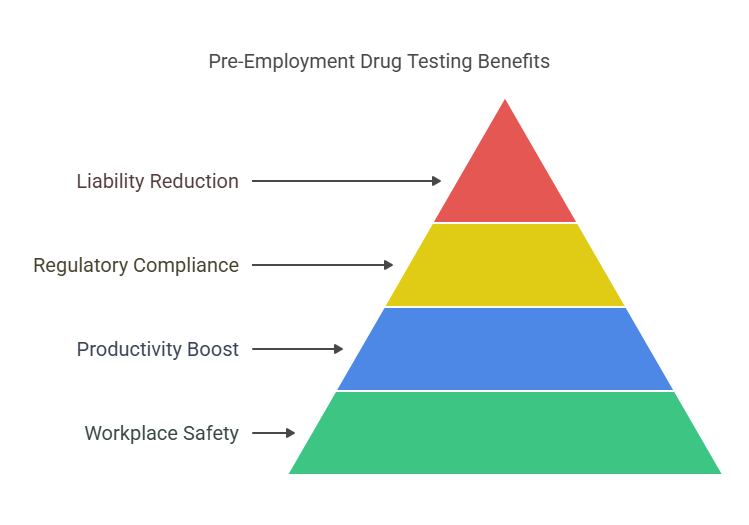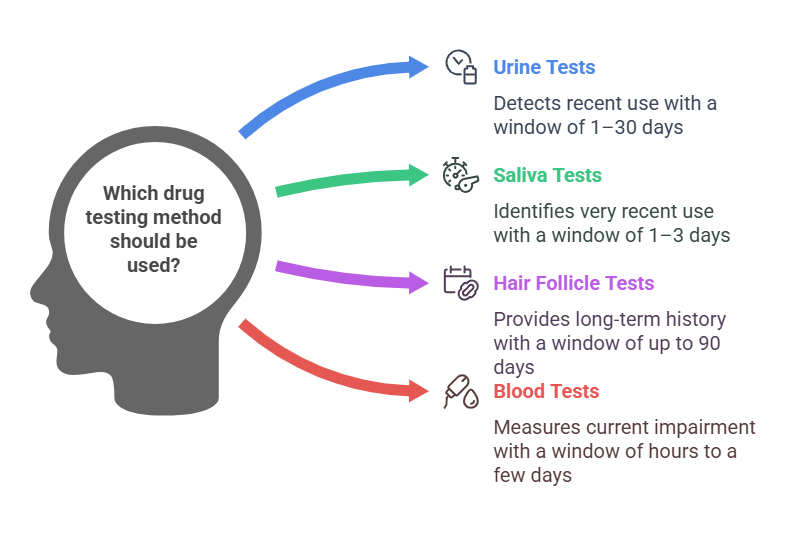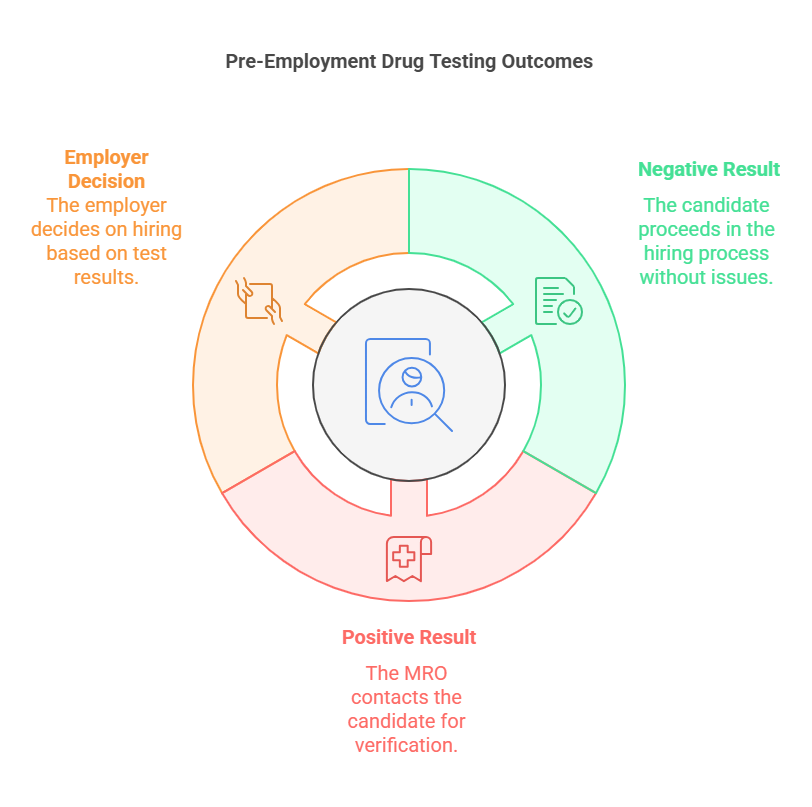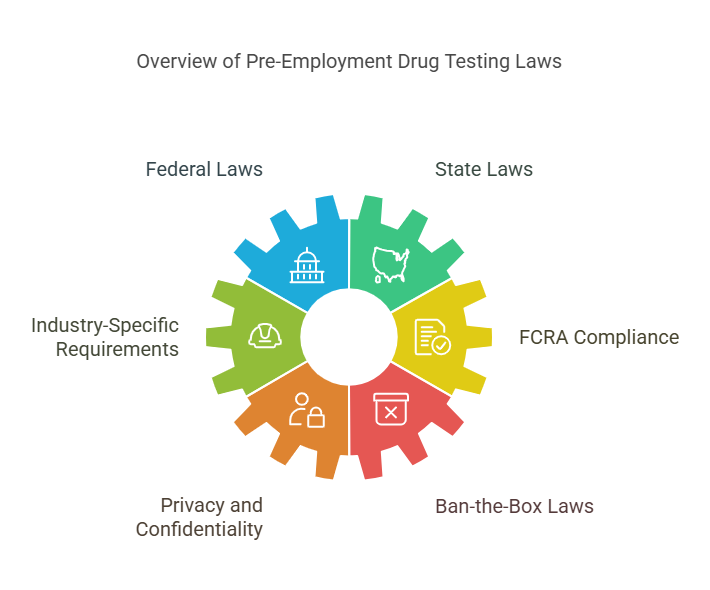When Do Employers Typically Drug Test New Hires?

When Do Employers Drug Test New Hires?
Drug test is a common practice in the hiring process for many companies, aimed at ensuring workplace safety, compliance, and productivity. This article delves into the details of pre-employment drug testing, including its purpose, processes, legal considerations, and frequently asked questions, to provide a complete guide for job seekers and employers alike.
Understanding Pre-Employment Drug Testing

Pre-employment drug testing is a crucial component of the hiring process for numerous organizations, particularly in safety-sensitive industries. It helps employers verify that potential hires meet workplace standards and comply with regulations.
What is Pre-Employment Drug Testing?
Pre-employment drug testing involves screening potential employees for the presence of illegal or controlled substances in their system. These tests are typically conducted before an applicant starts work, either as a condition of employment or to comply with regulatory requirements.
Why Do Employers Conduct Drug Tests for New Hires?
Employers conduct drug tests for several reasons:
- Ensuring Workplace Safety:
Employees impaired by drugs pose significant risks, particularly in industries like transportation, construction, and healthcare. Drug testing minimizes these risks by promoting a drug-free workplace. - Enhancing Productivity:
Substance abuse can negatively impact employee performance and reliability. Pre-employment screening helps employers identify candidates who align with their standards. - Compliance with Regulations:
Certain industries, such as aviation, trucking, and government roles, are legally required to implement drug testing programs to meet federal and state regulations. - Reducing Liability:
A drug-free workplace can lower the chances of accidents, legal claims, and workplace misconduct, protecting the company from potential lawsuits.
When Do Employers Conduct Drug Tests?
The timing of pre-employment drug tests varies based on company policies and the role being filled. Common scenarios include:
- Before Extending a Job Offer:
Some employers test all candidates before making an offer to ensure they meet the company’s drug-free standards. - After a Conditional Job Offer:
In many cases, employers make an offer contingent on the candidate passing a drug test. This is one of the most common approaches to pre-employment drug screening. - During the Onboarding Process:
Occasionally, drug testing may occur after a new hire has accepted an offer but before they begin their first day of work.
Industries and Their Drug Testing Requirements
Certain industries are more likely to require pre-employment drug testing due to the nature of their work. The table below summarizes some common industries and their requirements:
| Industry | Drug Testing Requirements |
|---|---|
| Transportation | Federally mandated for commercial drivers and pilots. |
| Healthcare | Required to ensure patient safety and regulatory compliance. |
| Government Roles | Mandatory for certain federal and state positions. |
| Construction | Necessary for safety-sensitive roles on job sites. |
| Education | Often required for positions involving children or vulnerable populations. |
Types of Drug Tests and Their Detection Windows

Employers use various drug testing methods to detect substance use. The most common types include:
- Urine Tests:
- Purpose: Detects recent drug use.
- Detection Window: 1–30 days, depending on the substance.
- Saliva Tests:
- Purpose: Identifies very recent drug use.
- Detection Window: 1–3 days.
- Hair Follicle Tests:
- Purpose: Provides a long-term history of drug use.
- Detection Window: Up to 90 days.
- Blood Tests:
- Purpose: Measures current impairment or recent use.
- Detection Window: Hours to a few days.
How Pre-Employment Drug Testing Works
Pre-employment drug testing involves several steps, from notifying the candidate to receiving and analyzing the results. This part provides a comprehensive overview of the process, the potential outcomes, and factors that can influence pre-employment drug testing.
Steps in the Pre-Employment Drug Testing Process

Here is a detailed step-by-step guide to how pre-employment drug testing typically works:
- Notification to the Candidate
- Disclosure: Employers are legally required to notify candidates if a drug test is part of the hiring process. This disclosure is usually included in the job posting, during interviews, or in the offer letter.
- Consent: Candidates must sign a consent form allowing the employer to conduct the drug test. Testing without consent is not legally permissible in most cases.
- Scheduling the Drug Test
- After obtaining consent, the employer or a third-party service schedules the drug test.
- Candidates are informed of the testing location (e.g., a clinic or collection center) and any preparation instructions, such as avoiding certain substances or medications.
- Sample Collection
- Urine Test: The candidate provides a urine sample under supervised or semi-supervised conditions to prevent tampering.
- Saliva Test: A swab is taken from the candidate’s mouth.
- Hair Test: A small sample of hair is cut from the head or body.
- Blood Test: A blood sample is drawn, usually by a healthcare professional.
- Proper chain-of-custody procedures are followed to ensure the sample’s integrity and avoid contamination.
- Lab Analysis
- Collected samples are sent to a certified laboratory for analysis.
- The lab screens for substances such as THC, cocaine, opiates, amphetamines, and other drugs based on the employer’s testing requirements.
- Initial screening results are confirmed through further testing to ensure accuracy.
- Reporting Results
- Once the analysis is complete, the lab sends the results to the employer or a medical review officer (MRO).
- Negative Results: If no drugs are detected, the employer is notified, and the candidate moves forward in the hiring process.
- Positive Results: If drugs are detected, the MRO contacts the candidate to verify whether the result may be due to prescribed medications or other legitimate reasons.
- Employer Action
- Based on the results, the employer decides whether to proceed with the hiring process.
- Employers are typically required to inform candidates of their rights to dispute the results if adverse actions are taken based on the drug test.
What Happens if a Candidate Fails the Drug Test?
Failing a pre-employment drug test can have different outcomes depending on the employer’s policies and the circumstances surrounding the failed result. Here’s what typically happens:
- Notification to the Candidate:
- The candidate is informed of the failed test, often through the MRO.
- They may be given an opportunity to explain the result, especially if a prescription medication caused the positive test.
- Employer Decision:
- The employer may rescind the job offer, particularly for roles where drug use poses safety or regulatory risks.
- In some cases, the employer may allow retesting or provide a chance for rehabilitation, depending on their policies.
- Retesting Options:
- Candidates can request a retest, especially if they believe the results were inaccurate or due to sample contamination.
Factors Influencing Pre-Employment Drug Testing
Several factors can affect whether and how pre-employment drug testing is conducted:
- State Laws and Employer Policies:
- Drug testing laws vary by state, with some states requiring strict compliance with specific guidelines and others imposing restrictions on testing practices.
- Employers may also have their own policies regarding the substances tested and the timing of the test.
- Role-Specific Requirements:
- Jobs in safety-sensitive industries, such as transportation and healthcare, are more likely to require pre-employment drug testing due to legal and ethical obligations.
- Positions involving public trust or security clearance often have stricter testing requirements.
- Drug-Free Workplace Initiatives:
- Employers committed to maintaining a drug-free workplace may test all candidates, regardless of the role, to ensure compliance with their policies.
The Importance of Choosing Reliable Background Check Providers
Accurate and efficient drug testing is essential for both employers and candidates. Partnering with a trusted provider ensures a seamless process and minimizes errors.
Exact Background Checks, for instance, offers a range of services tailored to meet employer needs. Their pre-employment drug testing solutions provide:
- Fast Results: Streamlined processes to minimize hiring delays.
- Compliance: Adherence to federal, state, and industry-specific regulations.
- Accuracy: Reliable testing methods to ensure precise results.
For candidates, a reputable provider ensures fair reporting and the opportunity to address discrepancies in test results.
Benefits of Accurate and Timely Drug Testing
Accurate and timely drug testing provides several advantages:
- For Employers: It reduces workplace risks, ensures regulatory compliance, and fosters a safer environment.
- For Candidates: It ensures fair evaluation and helps build trust during the hiring process.




